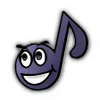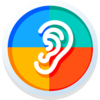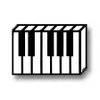Great for any aspiring musicians or professionals needing to practice their keys
Great for any aspiring musicians or professionals needing to practice their keys
Vote: (9 votes)
Program license: Free
Developer: Solfege
Version: 3.6.3
Works under: Windows
Vote:
Program license
(9 votes)
Free
Developer
Version
Solfege
3.6.3
Works under:
Windows
Pros
- Comprehensive collection of music theory exercises
- Systematic approach to learning
- Customizable exercise settings
- Multi-language support and light on resources
Cons
- Requires some background music knowledge
- Outdated user interface
- Dictation exercises need external notation
Sharpen your music theory with GNU Solfege, an educational tool for aspiring musicians.
Introduction to GNU Solfege
GNU Solfege aims to be your virtual tutor in the realm of music theory. It's a clever piece of software designed not for editing or mixing, but for teaching the foundational and advanced concepts that underpin musical knowledge. The application presents a suite of exercises that test and enhance your understanding of various musical elements such as notes, intervals, scales, and chords.
Educational Content and Structure
Upon diving into GNU Solfege, users will encounter an extensive library of exercises, each tailored to drill a specific aspect of music theory. The exercises range from simple note recognition to more complex subjects like harmonic progressions and counterpoint. What sets the program apart from other music learning tools is the systematic approach it takes, gradually increasing in complexity, which caters to both beginners with some basic knowledge and intermediate learners looking to solidify their skills.
The structure of the application is commendable, as it allows users to select specific areas to focus on. However, it is worth noting that achieving the most beneficial experience from GNU Solfege does presuppose a degree of prior musical understanding. This prerequisite might not be apparent at first glance, but it becomes evident once you start progressing through the more challenging modules.
User Experience and Accessibility
While the interface of GNU Solfege is straightforward and functional, it may not win any points for modern design. Its utilitarian presentation, however, does not impede the efficacy of its educational content. The software's accessibility is a strong suit — it supports multiple languages and offers customizable settings, which include different clefs, ranges, and the ability to create custom exercises. Such flexibility is beneficial for users with specific learning objectives.
Performance and Feedback
In terms of performance, the application runs smoothly without consuming an excessive amount of system resources. The immediate feedback provided after each exercise is a vital learning mechanism. It allows users to quickly identify their mistakes, understand the corrections, and harness this knowledge to improve their theoretical prowess.
One area where GNU Solfege might underperform is in its dictation exercises. The lack of an embedded tool to input answers digitally may lead to a disjointed experience, as it requires users to notate their answers externally.
Final Assessment
While GNU Solfege presents itself as a potent educational tool for music theory, it may not be well-suited for absolute beginners. The presumption of fundamental musical understanding can be a barrier to entry for some potential learners. Despite this, it is difficult to overlook the depth and breadth of exercises that can significantly bolster one's theoretical knowledge when used correctly. In conclusion, GNU Solfege is occasionally hindered by its interface and certain aspects of its user experience but shines where it matters most — as a robust resource for those who wish to test and expand their musical understanding.
Pros
- Comprehensive collection of music theory exercises
- Systematic approach to learning
- Customizable exercise settings
- Multi-language support and light on resources
Cons
- Requires some background music knowledge
- Outdated user interface
- Dictation exercises need external notation




